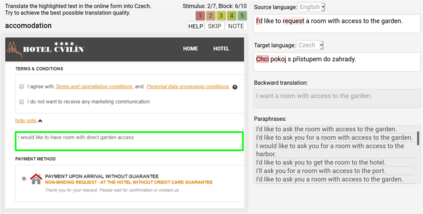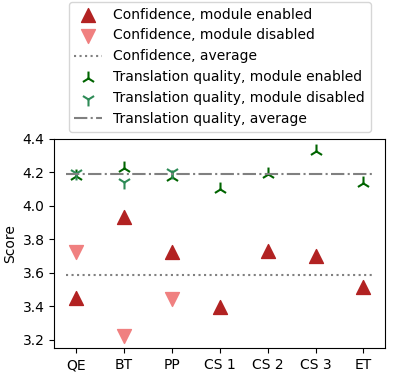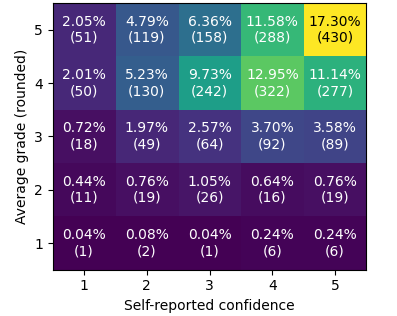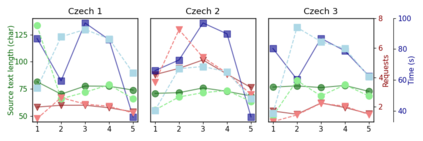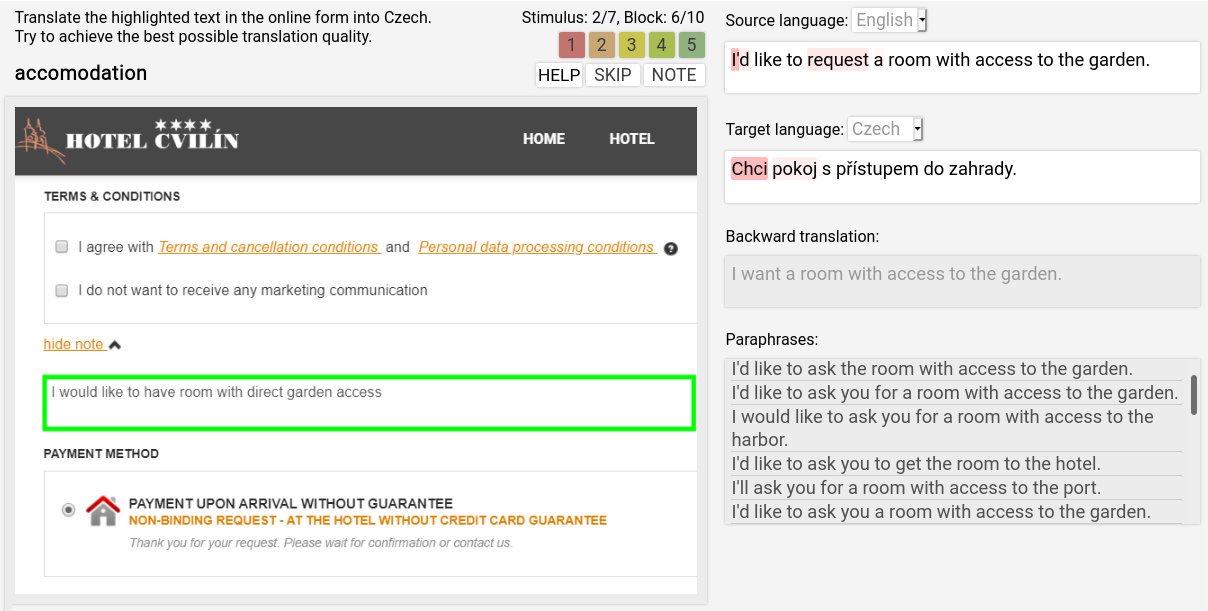Translating text into a language unknown to the text's author, dubbed outbound translation, is a modern need for which the user experience has significant room for improvement, beyond the basic machine translation facility. We demonstrate this by showing three ways in which user confidence in the outbound translation, as well as its overall final quality, can be affected: backward translation, quality estimation (with alignment) and source paraphrasing. In this paper, we describe an experiment on outbound translation from English to Czech and Estonian. We examine the effects of each proposed feedback module and further focus on how the quality of machine translation systems influence these findings and the user perception of success. We show that backward translation feedback has a mixed effect on the whole process: it increases user confidence in the produced translation, but not the objective quality.
翻译:将文本转换成文本作者所不知道的一种语言,称为 " 外向翻译 ",是一种现代需要,用户的经验除了基本的机器翻译设施外,还有很大的改进余地。我们通过展示三种方式来证明这一点:用户对外向翻译的信心及其总体最终质量会受到影响:后向翻译、质量估计(与校正一致)和源码参数。我们在本文件中描述了从英文到捷克和爱沙尼亚的外向翻译实验。我们研究了每个拟议的反馈模块的效果,并进一步侧重于机器翻译系统的质量如何影响这些结果和用户对成功的看法。我们表明,后向翻译反馈对整个过程有好坏参半的影响:它增加了用户对所制作翻译的信心,但不是客观的质量。

